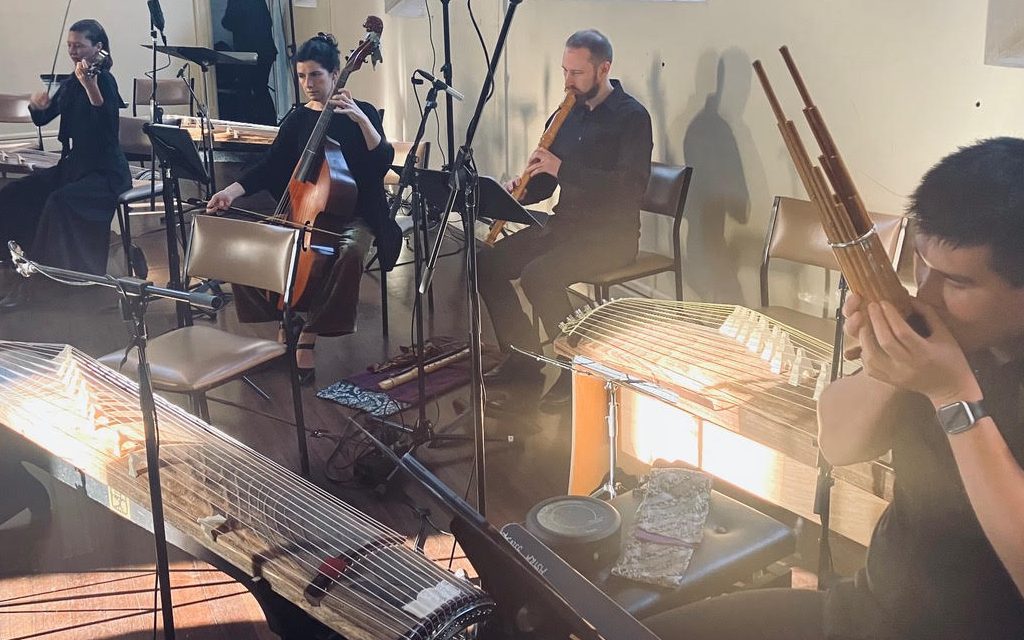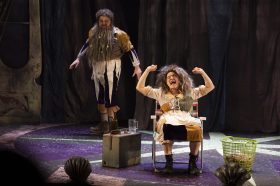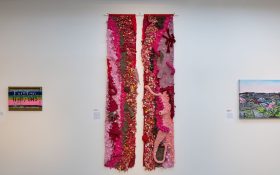Pattern of Plants, an orchestral performance from Japanese, post minimalist composer, Mamoru Fujieda, transported audiences into a euphonious Zen garden. The performance, an eclectic infusion of traditional Japanese instrumentals, the koto (harp) and the sho (reed organ), and early baroque works, was a fascinating listen and beautifully backdropped by The Eleventh Hour Theatre in Melbourne.
Fujieda’s previous compositions have been consistently radical, and include elements of electronically processed and modulated sounds, with a focus on specific structural elements. His latest instalment, inspired by the electrical activity of plants and taking 26 years to master, is a contemplation: “what are plants trying to say?” He has endeavoured to capture their answers through the “Plantron”, a device created by botanist and artist Yuji Dogane that converts vegetal energies into musical patterns.
The performance, brought to life by a cross-cultural ensemble formed by Astra, was a testament to Fujieda’s fascination with the uniqueness of flora. His fascination permeated every note and tonal variation, which carried a harmonious meld of sensuousness and allegro, reminiscent of Celtic traditions. Pieces such as Chidori no Kyoku (translated to Song of Plovers) by Miyama McQueen-Tokita served as a moving midpoint, while Ariel’s Song injected an energetic pulse, before gradually transitioning into more sombre compositions, such as Today Is a Very Good Day to Die.
Each instrument shone in its own right, from the dramatic tranquillity of the koto to the lingering echoes of the sho and the medieval infusion of the baroque violin and viola. This amalgamation of instruments resulted in a rare musical fusion, likened to strolling through a deep forest. Remarkably, the band members, drawn from as far afield as Tokyo, had never performed together before this show.
While the suites were interesting in their own right, there was a sense of a missing overarching or travelling narrative flow. Each short composition drifted gently, but a stronger thematic connection between them would have added depth to the overall performance.
One notable absence was an introductory segment that would have provided informative context or meaning to the work. Fortunately, towards the close of the performance, Fujieda stepped forward to elucidate the composition process, sharing his experiences in Melbourne’s Botanic Gardens and his touching fascination with plants.
The theatre’s lofty ceilings and stained-glass windows provided a fitting backdrop for the show. Although a few plants could have enhanced the atmosphere, the simplicity and placement of the kotos compensated for any potential lack of set design.
Read: Book review: A Light in the Dark, Allee Richards
Patterns of Plants offered a contemplative journey into the harmonious intersection of traditional Japanese influences, Western early music, poetry and modern science. While we may not entirely grasp the intricate language of plants, whatever they are saying sounded pretty beautiful to me.
Patterns of Plants
Directed by Andrew Byrne
Presented by Astra Concerts
Miyama McQueen-Tokita, koto
Laura Vaughan, viola da gamba
Simone Slattery, baroque violin
Brandon Lee, koto
Ryan William, recorders
Henry Liang, sho
Alexander Ritter, countertenor
Pattern of Plants was performed from 2-3 September 2023.





